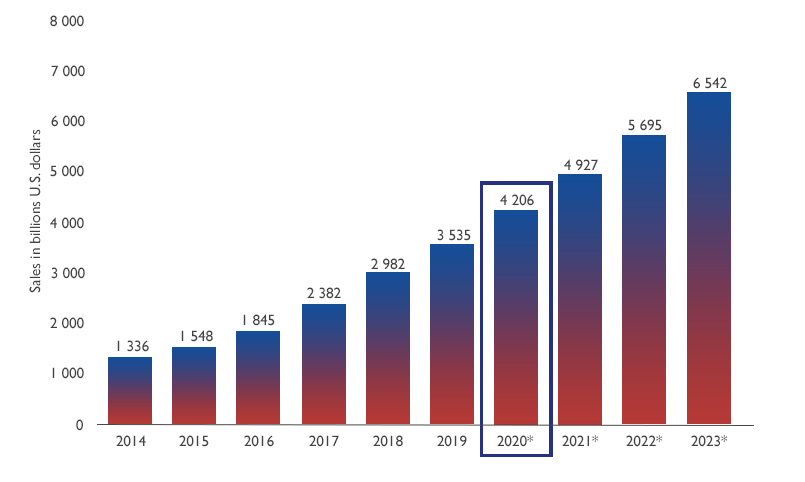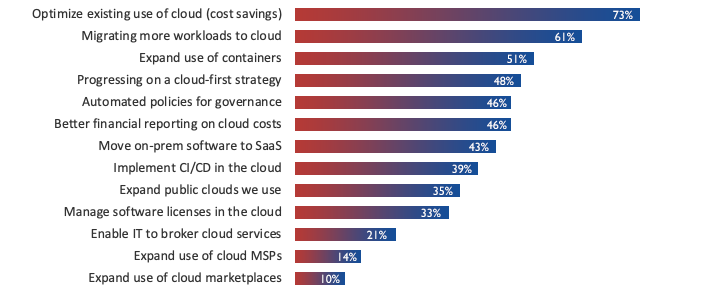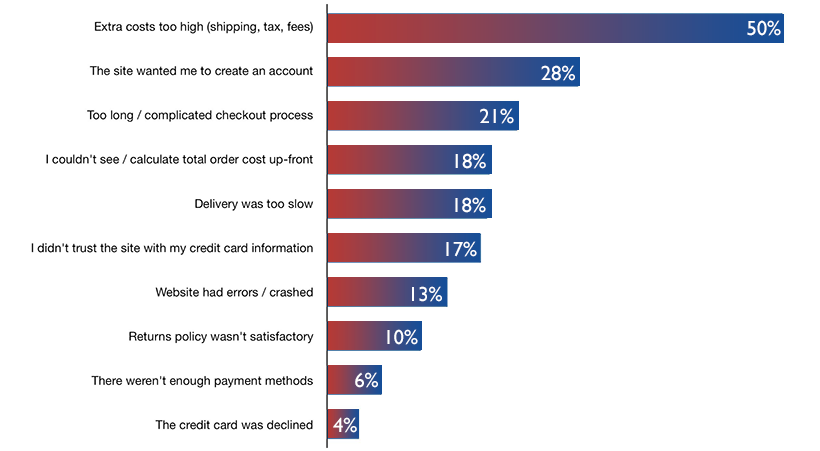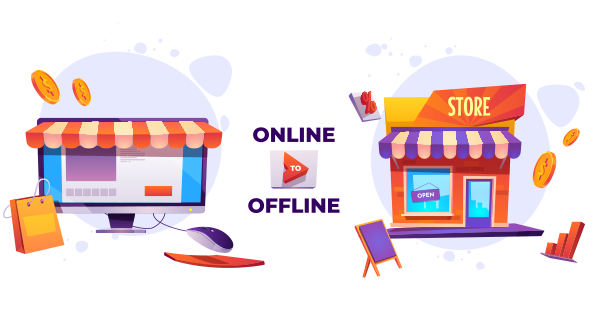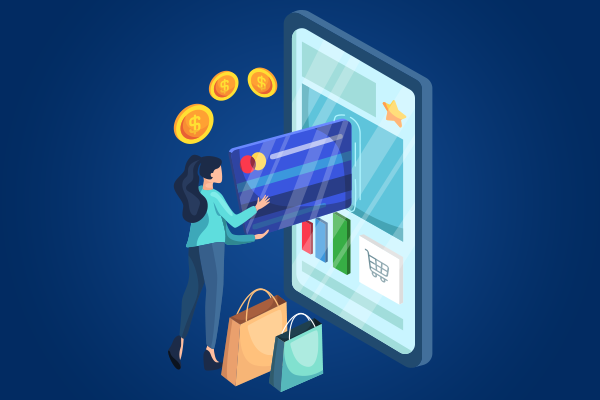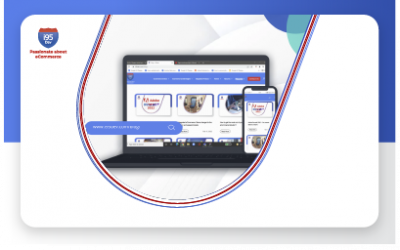2020 Guide to Shopify ERP Integrations for Business Agility

Shopify powers 427,676 eCommerce stores, and 820,000+ merchants currently use it for their online businesses. It is arguably the best platform for businesses as it enjoys the patronage of 800,000 businesses across 175 countries. On the other end, market volatility and dynamism are posing the need for dedicated ERP systems. ERP solutions’ market is expected to touch USD 78.40 billion by 2026, while 51% of CIOs prefer cloud ERP solutions. In this article, we are going to understand how Shopify-ERP integrations improve your business agility. Dive in deeper to learn more about the topic:
What Is ERP Solution and How It Helps Your Business
An ERP suite is a set of software solutions for managing business processes and functions through common databases. ERP applications are generally based on the Software-as-a-Service (SaaS) model. Material Resources Planning (MRP), Customer Relationship Management (CRM), Human Resource Management, and Supply Chain Management are its core modules. They provide visibility of resources and processes across various departments of the organization and corresponding external partners/ stakeholders. In the absence of an Enterprise Resource Planning system, the following problems would stall your organization’s productivity:
- Manual data entry and database management on spreadsheets.
- Exhaustive efforts to retrieve and apply information from primary and complementary databases.
- Mismanaged workflows at the interdepartmental and cross-departmental level.
- Inefficient utilization of resources.
- Poor responsiveness against change.
- Redundant and repetitive processes that don’t add value to any business function.
Through ERP implementation, you can visualize, automate, streamline, integrate, and measure all your business functions and processes. Thus, they help improve your ROI and bottomline with real-time responses to every transaction. Modern ERPs also include purchase, sales, marketing, finance, inventory, manufacturing, and order management systems. They provide user-friendly dashboards along with extensive BI reports. They foster a collaborative culture within the organization and manage business across geographies with state of the art system security and stability. Clubbing these aspects with the increasing competition in the online store industry, integrating your eCommerce platform with ERP applications is becoming mandatory.
Shopify and ERP Implementation
Shopify is an online marketplace platform where users can build a frontend to display your products/ services, collect payments, manage inventory, and shipping. You can also integrate your Shopify store with Amazon and Facebook Marketplace. It provides an ecosystem for eCommerce business functions across in-house and partner applications, shipping firms, suppliers, and vendors. Shopify store owners grow at 126% YoY on an average. Shopify Plus is its enterprise-level solution with the following salient features:
- An over-the-cloud model with 99.99% uptime.
- Unlimited bandwidth, zero transaction fees, and customization-friendly APIs.
- High scalability with no limits on product count.
- Quick customization and deployment cycles.
- It can be used without any dedicated in-house IT support.
- 24/7 Customer support over phone calls, live chat, emails, and community forums.
- Single ecosystem for all your online business requirements.
- Relatively affordable as compared to legacy online selling platforms.
You can integrate your Shopify/ Shopify Plus eStore with leading ERP systems like Microsoft Dynamics, Acumatica, NetSuite, SAP Business One, and Sage 100. Ideally, you should always consult an expert before considering ERP implementation.
This is because its upfront costs and post-implementation costs like employee training are considerable investments. Getting stuck with the wrong solution is expensive and sabotages productivity until an extended period. You can evaluate the need for using one based on some key indicators as mentioned below:
- You are facing trouble in coordinating sales with inventory management.
- Your IT infrastructure is becoming a significant cost center.
- Managing operations requires a vast number of repetitive clerical formalities.
- Your estore has complex workflows and uses multiple software solutions for various business processes.
- Core business functions like analytics, accounting, and supply chain management are suffering due to weak information visibility.
Nestle, Tesla Motors, Pepsico, and Redbull are some of the major brands that rely on Shopify to run their online stores. However, using a dedicated enterprise resource planning system is equally crucial for running a profitable estore.
Points to Keep in Mind While Selecting your ERP Software for your Shopify-Based Online Store
Many factors affect the selection of the right ERP vendor due to the customization and utility criteria. Online stores are moving towards omnichannel sales and mobile-first strategies, which require agility, intuitive automation, BYOD friendliness, system stability, and data security. While selecting the right cloud ERP solution, you should look out for integrations with online selling platforms, shipping management, and inventory control support for omnichannel sales. Also, reflecting information across the selling platforms and the accounting system is a must. Warehouse management, too, needs an integrated approach for streamlining operations. Typical market offerings have hostility towards extensive customization and mobile-friendliness. It should harness marketing automation through engagement tools, reduction in errors, maintaining data integrity across cloud, on-premise, and your eCommerce platform. You should keep all of these aspects in mind while considering an ERP Software for your eCommerce platform.
The reasons proposed for using cloud infrastructure for commercial purposes are as mentioned below
7 Ways ERP Integrations Boost the Business Agility Of Your Shopify Store
This section will list down the top seven ways (not necessarily in any order) in which ERP integrations boost your business. It impacts a multitude of areas in the entire organization on a varying scale. We have tried to keep them relevant to our broad audience. Have a quick look here:
#1 Improved Control over Resource Allocation
Clubbing your Shopify platform with ERP applications results in an intuitive, intelligent, automated, and data-driven business ecosystem. Hence, the resources within the company and from the partner organizations are allocated in a better manner. The direct benefit of intelligent resource allocation is reflected in the strategic execution and eased out supporting business functions like accounting and human resource management. Firms with less control over resource insights tend to price their products conservatively, which ultimately leads to cart abandonment and low sales:
#2 Enhanced Decision Making Through BI Tools
Business Intelligence (BI) is one of the biggest benefits pursued by organizations throughout ERPs’ history. They generate a large number of customized reports for marketing, sales, inventory management, and order fulfillment purposes, including warehouse picking. Hence, online stores can make well-informed decisions despite a large number of transactions.
#3 Omni-Channel Marketing And Sales Support
Omnichannel marketing and sales are transformed through seamless data integration. Automation of workflows and database management help businesses synchronize their efforts while acting upon demand trends. Usually, Shopify requires manual inputs that would drive users frenzy, but implementing an enterprise resource planning solution helps save thousands of dollars spent on overheads. Consumers describe not receiving goods on time as the biggest reason for not completing a purchase.
#4 Improved Vendor, Supplier, and Shipping Partner Management
For any eCommerce store, the most challenging aspects of operations revolve around supplier/ vendor management and coordinating with the shipping/ logistics partners. Using an ERP suite with Shopify Plus streamlines all of these functions and facilitates a smooth flow across inhouse and partner applications.
#5 Optimized Business Processes and System Stability
The customizations and third-party integrations help reduce the repetitive workload across all platforms, while ERP applications eliminate all redundancies. Real-time control over the business processes and high system stability translate into revenue-centric operations. Thus, your estore can handle the transactions in a better manner without compromising on any strategic front.
#6 Better Grip Over Inventory And Customer Experience
The demand patterns in the eCommerce industry exhibit high volatility, and many factors like movies, social media, and festivities impact sales. Hence, getting real-time updates regarding the stock and shipping status aids in catering better customer experience. Events like flash sales, discounts, stock clearance, and event-based sales are entirely dependent on agile inventory management and highly enriched CX.
#7 Greater Visibility across Multiple Stores and Platforms
Omnichannel sales is too complex to be handled manually. Hence, automated workflows and triggered actions help ensure timely delivery of all shipments without any mishaps. ERPs also enable your Shopify store to process backorders effortlessly.
Key Benefits of Comprehensive Integration Solutions
As an organization, you should avail a lot of operational and strategic benefits from Integrating your Shopify store with an ERP suite. However, integration solutions also play a significant role in the success of the implementation. Here, we are listing down a few key benefits that your solution provider should offer. You should look out for the following features for ensuring high ROI and smooth functioning of your business:
- Standardized application flows across storefront, databases, and ERP systems.
- Extensive marketing capabilities, BI analytics, and data sync.
- API-first integration strategy.
- Support for multiple platforms and stores.
- Bidirectional data integration on your Shopify store and ERP.
- Enhanced customer experience (CX).
Over to You
Are you looking to integrate your Shopify/Shopify Plus store with leading ERP systems like Microsoft Dynamics 365 (Finance & Operations, Business Central), or Dynamics AX, Dynamics NAV, Dynamics GP, Acumatica, NetSuite, SAP Business One, Sage 100, or QuickBooks?
Recent Blogs
22 benefits ecommerce home decor furniture businesses
22 Benefits of eCommerce for Home Décor and Furniture Businesses Author Category Share Home décor and furniture businesses are increasingly turning to eCommerce to elevate their operations...
Home Improvement Industry: 11 Key eCommerce Features Consider
Elevating Home Improvement eCommerce: 11 Must-Have Features for a Seamless Shopping Experience Author Category Share In the dynamic landscape of home improvement, furniture, and lifestyle,...
Complete Guide to Automotive eCommerce Growth, Trends, Challenges, Solutions
A Comprehensive Guide to Accelerate Your Automotive Business Growth with eCommerce Author Category Share Introduction The automotive industry has undergone a significant transformation in...



